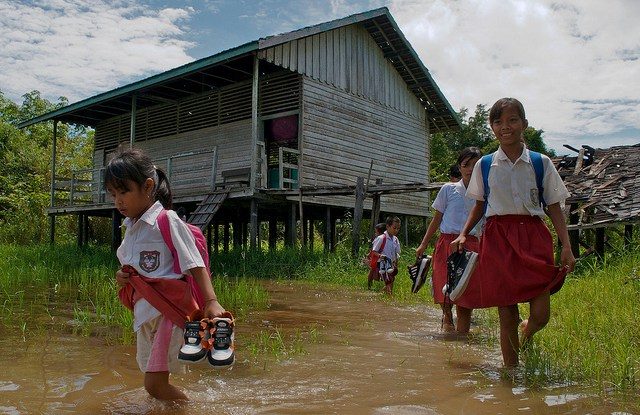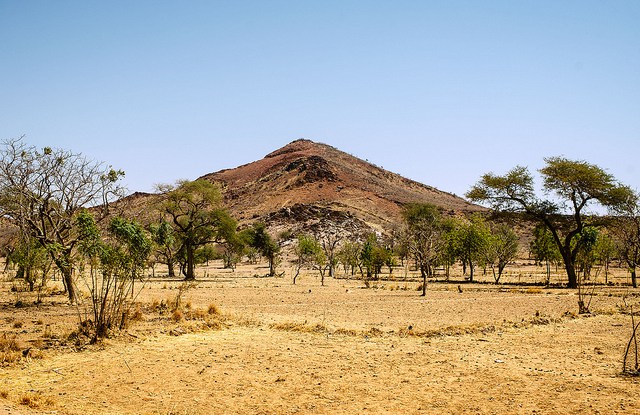MONTPELLIER, France — We know that forests can mitigate climate change. But what of forests’ ability to help us adapt to it?
The former has been well-established; the latter has not.
This knowledge gap has spurred a study of rural communities’ forest-based strategies for resilience to climate variations across three continents. Preliminary results from their research in Indonesia shows that the forest plays a key role in the way they cope with natural disasters.
“Our research question is how forests reduce the vulnerability of society to climate variation,” said Florie Chazarin, a research fellow with the Center for International Forestry Research (CIFOR).
Chazarin, along with CIFOR research fellow Giacomo Fedele, are conducting a comparative study of Peru, Burkina Faso and Indonesia. The three countries were chosen “for their increasing vulnerability to climatic hazards such as droughts, floods and landslides,” Chazarin said at the recent Resilience 2014 conference in Montpellier, France.
Through participatory activities with communities and interviews at the household level, the researchers aim to establish how forests affect people’s exposure and sensitivity to disasters, as well as their adaptive capacity to respond to them.
Preliminary results from the first round of field research in two villages of West Kalimantan, Indonesia, showed that local people relied heavily on the forest to prepare for floods and reduce their impact.
“One village has a regulation that bans tree cutting along the river,” Fedele said. “They are aware that the forest plays a role in controlling floods. The other village has a customary rule that 15 percent of [high-value] wood sales goes to the village for repairs after floods.”
When extreme floods hit both villages in 2009, residents relied on short-term coping strategies such as purchasing food and moving valuables to safe locations, as well as more radically transformative ones, including moving the village’s location — but those strategies were less dependent on the forest.
By using their research, project developers could target benefits to the global ecosystem as well as local needs through the reduction of vulnerability
“Forest and trees are especially important in preparedness, including in the long term through services such as erosion reduction,” Fedele said. “The big rain will come, but they mean its impact will be lower.”
Fedele also noted that while one village was more accessible, with less forest cover and the other was in a more remote and densely forested area, this did not affect their vulnerability nor their level of reliance on trees for disaster preparedness. “This relates to the threshold effect of tree cover on ecosystem services,” Fedele said. This means that enough forest was present in the right place in both villages to play its role, but if it became degraded beyond a certain tipping point, it would affect the communities’ capacity to adapt to climate events.
As Chazarin and Fedele survey more sites in the coming months, their findings could influence the way adaptation needs are taken into account when conserving forests — an effort so far solely focused on storing carbon.
Bruno Locatelli, a CIFOR scientist who studies climate change mitigation and adaptation, says the pair’s findings could have wide applicability.
“By using their research, project developers could target benefits to the global ecosystem as well as local needs through the reduction of vulnerability.”
For more information about the topics of this article, please contact Bruno Locatelli at b.locatelli@cgiar.org.
We want you to share Forests News content, which is licensed under Creative Commons Attribution-NonCommercial-ShareAlike 4.0 International (CC BY-NC-SA 4.0). This means you are free to redistribute our material for non-commercial purposes. All we ask is that you give Forests News appropriate credit and link to the original Forests News content, indicate if changes were made, and distribute your contributions under the same Creative Commons license. You must notify Forests News if you repost, reprint or reuse our materials by contacting forestsnews@cifor-icraf.org.

